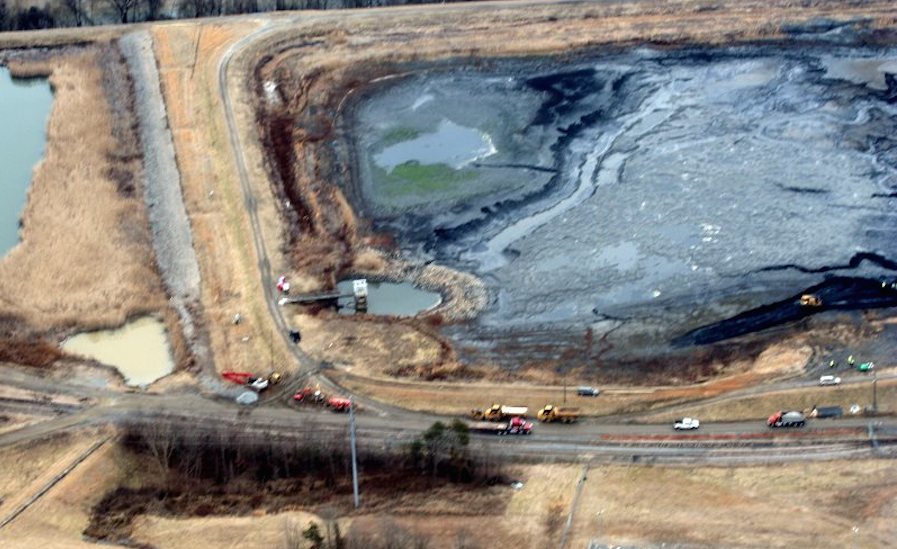Duke Energy has agreed to remove all five million tons of coal ash from three unlined pits along the Yadkin River in North Carolina in the latest pact to resolve the utility’s estimated $4.5-billion legacy cleanup.
In an Oct. 5 U.S. district court settlement of 2014 lawsuits by environmental groups Yadkin Riverkeeper and Waterkeeper Alliance, Duke agreed to remove the ash containing toxic heavy metals from pits that total 119 acres at the Buck Steam Station in Salisbury. It will be recycled into concrete or put in lined landfills away from the river and from groundwater and drinking water sources.
The utility will build a processor, set to complete in two years, to remove carbon from the ash, a spokeswoman said. Duke Energy has 32 coal ash basins at 14 plants in several states and has reached agreements to excavate 23, she said.
Six of the remaining nine sites are in North Carolina, where state law requires the firm to install three recycling units. It has set locations for two. Duke “is making additional significant investments in technology designed to reprocess coal ash from basins,” the company said.
The Southern Environmental Law Center filed the suits for the groups after state officials did not take action against all Duke coal ash violations at Buck, which closed in 2013. Parts of the facility date to 1926.
The court said in 2015 that it could not conclude the state was diligently prosecuting Duke in good faith, said the law center, which has pending suits against six remaining North Carolina sites. Duke reached a $6-million state pact in September related to the 2014 spill of nearly 40,000 tons of coal ash into the Dan River.
“Duke has been fighting them out one at a time,” said Frank Holleman, a law center senior attorney.
In 2013, South Carolina utilities, including Duke Energy, reached an agreement with the law center to excavate coal ash from unlined storage pits there, recycle it or put it in lined landfills, Holleman said. Duke has two sites in the state.
The law center’s next step is to pursue unlined storage in other states. “Georgia Power has agreed to excavate those in coastal zones and a few others. That is an important first step,” Holleman said
Claims by the law center that Dominion Virginia Power violated the federal Clean Water Act were heard during a June trial held in US District Court in Richmond.
Unlined pits at the Chesapeake Energy Center, closed in 2014, hold 61 years of coal ash. “It is the last unlined pit in the coastal zone in the Southern Atlantic region. All other are being excavated,” Holleman said.
The law center has also filed suit against the Tennessee Valley Authority, claiming that the unlined coal ash pits at the Gallatin plant near Nashville are polluting the Cumberland River. TVA’s unlined sites are of particular concern because of their location on Karst topography, Holleman said.






Post a comment to this article
Report Abusive Comment